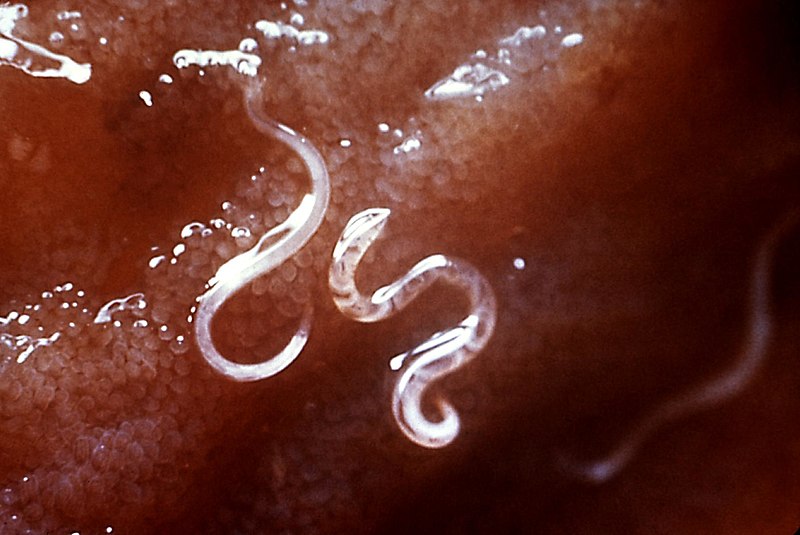Have you ever wondered, “Does my dog have hookworms?” It’s a question that many pet owners may face. In this informative piece, I’ll share my experience and insights on identifying and addressing hookworm infestations in dogs to help you safeguard your furry friend’s health.

A Personal Story of a Close Call
My own dog, Taz, recently faced a severe health crisis due to hookworms. These tiny parasites can multiply rapidly and pose a significant threat to your dog’s well-being. Hookworms feed on your dog’s blood, and when left unchecked, they can lead to severe anemia. Let me take you through the signs, symptoms, prevention, and treatment of hookworms.
Identifying Hookworms
- Behavioral Changes: One of the initial signs I noticed in Taz was a change in his behavior. He became lethargic, less enthusiastic, and unresponsive to commands.
- Appetite and Hydration: Dogs with hookworms often lose their appetite and show decreased interest in drinking water.
- Lethargy: They may appear lazier and more tired than usual, even avoiding playtime or walks.
- Pale Gums: Checking your dog’s gums can provide vital clues. Hookworms can lead to anemia, causing pale or almost white gums.
Seeking Veterinary Help
If you notice these symptoms, it’s crucial to consult your veterinarian promptly. Hookworms can’t be detected externally like fleas or ticks; diagnosis requires a test. During your vet visit, a fecal sample may be taken and analyzed for hookworm eggs or larvae.
The Importance of Treatment
Upon diagnosis, your vet will recommend a treatment plan. It’s crucial to address the issue promptly, as hookworms can severely impact your dog’s health. The treatment typically involves deworming medication specifically targeting hookworms.
Preventive Measures
Preventing hookworm infestations is essential. Here’s what you can do:
- Regular Deworming: Administer preventive deworming medications as recommended by your veterinarian. It’s crucial to use the right medication, as not all wormers are effective against hookworms.
- Maintain Cleanliness: Maintain a clean living environment for your dog. Regularly remove feces from your yard, as this can help prevent reinfection.
- Consult Your Veterinarian: If you suspect a hookworm infestation or are unsure about the right preventive measures, consult your vet. They can provide guidance tailored to your dog’s specific needs.
A Happy Ending
Two days after treatment, Taz showed remarkable improvement. He started eating, drinking, and regaining his energy. The key takeaway is to be vigilant, as your dog can’t communicate their discomfort. By staying informed about hookworms, their symptoms, and preventive measures, you can protect your beloved pet from this potentially dangerous parasite.
Acknowledgments
I’d like to extend my gratitude to the following individuals for their support during Taz’s health crisis:
- Cindi Stump, Owner of Stump Farms
- Donna Neighbors (Barkley), My Grandma
- Harland Sprouse, DVM – Brookfield, MO
I highly recommend Dr. Harland Sprouse, DVM, in Brookfield, MO, for his exceptional care and expertise in handling pets.
if you want to learn more about things around your pets, visit 4 The 4 Paws website
As an Amazon Associate we earn from qualifying purchases through some links in our articles.
